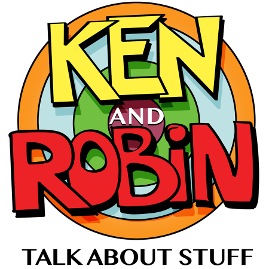Ken and Robin Consume Media: Monkey Man, Morricone, and Studio Era Screenwriting
April 9th, 2024 | Robin

Ken and Robin Consume Media is brought to you by the discriminating and good-looking backers of the Ken and Robin Talk About Stuff Patreon. Each week we provide capsule reviews of the books, movies, TV seasons and more we cram into our hyper-analytical sensoriums. Join the Patreon to help pick the items we’ll talk about in greater depth on a little podcast segment we like to call Tell Me More.
Recommended
Ennio (Film, Italy/Belgium/Netherlands/Japan/HK, Giuseppe Tornatore, 2022) Tornatore turns his worshipful eye to the greatest film composer of all time, centering this conventional talking-heads doc on a long interview with Morricone running the gamut from pride to regret to just a hint of payback. What it misses in sharp edges it makes up for in breadth of coverage, 156 minutes from Morricone’s early pop arrangements to his final symphonic compositions on 9/11 and for The Hateful 8. Even discounting some of the doc’s extravagant claims, the result is a portrait of a Shakespearean talent. You’ll want to follow it up with one of the full-length Morricone concert films.—KH
Intimate Confessions of a Chinese Courtesan (Film, Hong Kong, Chor Yuen, 1972) Kidnapped into a brothel, a defiant teacher’s daughter (Lily Ho) wins the love of her madam (Betty Pei Ti) and the kung fu training that goes with it, preparing her to wreak systematic revenge. Sadomasochistic sexploitation martial arts melodrama frames inescapably skeezy material and the standard building blocks of the Shaw Brothers production system with lush aestheticism of color, staging and movement.—RDL
It’s the Pictures that Got Small: Charles Brackett on Billy Wilder and Hollywood’s Golden Age (Nonfiction, Charles Brackett, edited by Anthony Slide, 2015) Selections from the journals of screenwriter and producer Brackett document the draining and rewarding 15 year collaboration that yielded such films as Lost Weekend, Sunset Boulevard, and Ninotchka, with early Academy Awards politics and barbed portraits of movie legends sprinkled in along the way. More than just a record of one notable partnership, this provides an invaluable look at the nuts and bolts of film production under the studio system. One notable example: although Brackett sometimes mentions a three act setup, he more often refers to a five-sequence structure as the screenplay default.—RDL
Monkey Man (Film, Canada/US, Dev Patel, 2024) Hanuman-obsessed orphan turned underground fight stooge (Dev Patel) seeks revenge. Patel constantly risks throwing the viewer out of the movie with tonal jumps, most critically while his character levels up in a temple refuge, but the balletic and brutal action keeps you watching.—KH
What the Hell Happened to Blood, Sweat & Tears? (Film, US, John Scheinfeld, 2023) To keep their lead singer’s green card, the biggest band in the world (they beat the Beatles for the 1970 Album of the Year Grammy) agreed to tour Yugoslavia, Romania, and Poland in 1970 for the U.S. State Department. Assembled from (highly watchable) footage of that trip shot, censored, lost, and recovered, this doc argues (not quite convincingly) that the proto-cancel-culture fallout from that trip is why BS&T stopped being the biggest band in the world.—KH
Good
Drive-Away Dolls (Film, US, Ethan Coen, 2024) Lesbian besties, motormouth Jamie (Margaret Qualley) and repressed Marian (Geraldine Viswanathan) sign on to drive a car from New York to Tallahassee, unaware that the trunk contains a mysterious briefcase and a severed head. Good-natured, goofball road comedy is looser and more cosmically forgiving than Coen’s work with his brother Joel.—RDL
The Wet Parade (Film, US, Victor Fleming, 1932) An empathetic southerner (Dorothy Jordan) and restrained New York hotel keeper (Robert Young) are drawn together, in part by their experience with alcoholic fathers, against the background of America’s experiment with Prohibition. Ensemble social drama based on an Upton Sinclair novel provides a contemporaneous look at the evils of drink and the worse evils of trying to ban it.—RDL














